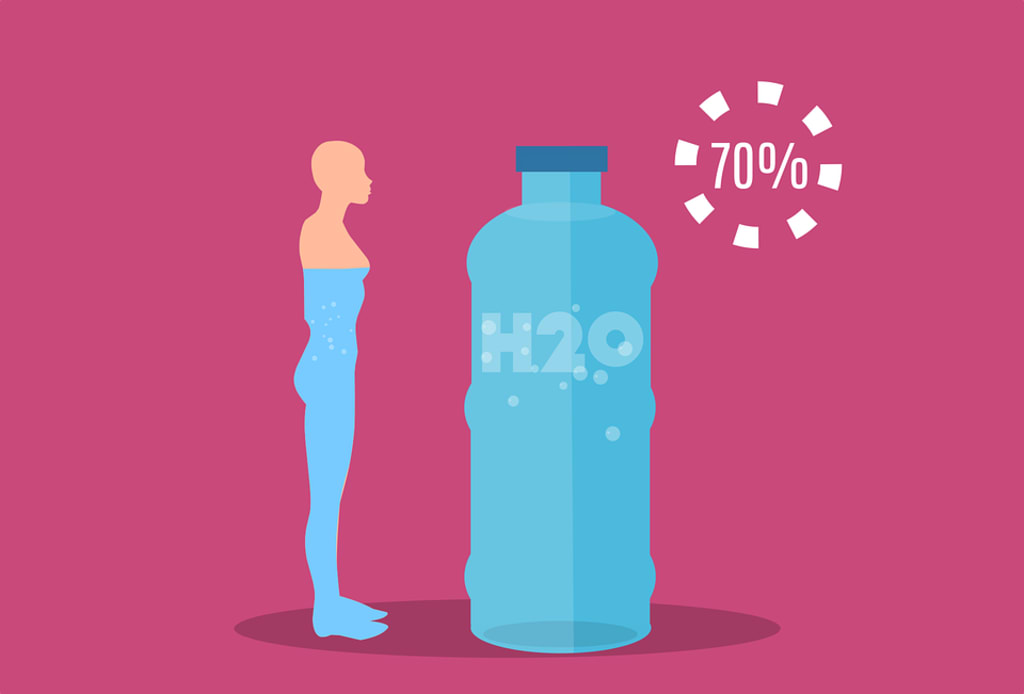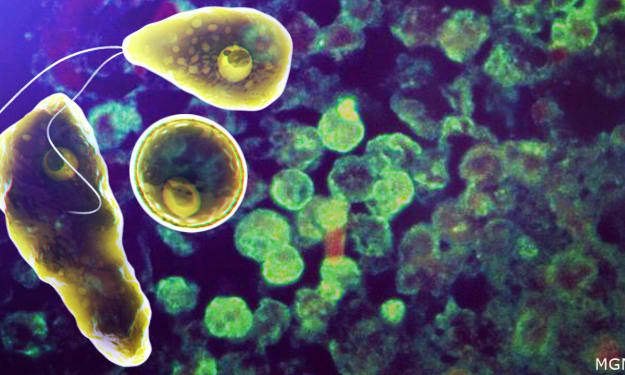The Importance Of Water In The Body
A Dive into the Science of Thirst and Dehydration

Introduction
Thirst is a sensation that everyone is familiar with. It's that undeniable urge to find and consume water, a fundamental need for the survival of any organism. As you probably already know, without water, life as we know it would cease to exist within a matter of days. The exact timeframe varies based on circumstances – for instance, being stranded in the scorching Sahara desert without protection would lead to a much quicker demise than in other, more hospitable environments. In this article, we'll explore the science of thirst, the body's mechanisms for maintaining water balance, and the different types of dehydration. So, let's dive in.
The Significance of Hydration
Humans can survive without food for extended periods, ranging from weeks to even months, depending on specific conditions. However, water is a different story. It's an absolute necessity, and roughly two-thirds of our total water volume is located inside our cells, encompassing vital organs like the brain, heart, lungs, and kidneys. The remaining one-third is found outside of our cells, mainly in connective tissues.
Dehydration comes in two primary forms: intracellular and extracellular thirst. When your cells are dehydrated, a simple remedy might be to drink water to replenish them. However, when you lose blood, such as in the case of an injury or wound, you need not just water but also salt to regenerate blood at its proper concentrations. In such instances, having a meal along with water can help quench your thirst effectively.
Determining Your Daily Water Intake
The question of how much water one should drink per day is not as straightforward as it may seem. It depends on various factors such as your altitude, age, menstrual cycle, alcohol consumption, and physical activity level. However, it's crucial to establish the habit of drinking water consistently before fine-tuning the exact amount needed based on individual circumstances.
The Brain's Role in Thirst and Hydration
To understand how the body monitors and regulates hydration levels, we need to look at a critical part of the brain, the hypothalamus. The hypothalamus, along with the pituitary gland, forms a bridge between the nervous system and the endocrine system. These structures work together to maintain homeostasis, the body's natural balance.
Osmoregulation, the process of maintaining the balance of water and electrolytes in the body, is crucial for ensuring hydration. Osmoreceptors in the hypothalamus, which are stretch-sensitive neurons, play a significant role in this process. These osmoreceptors can sense changes in water and electrolyte concentrations within the body. When there's insufficient water, they shrink, triggering the release of antidiuretic hormone (ADH), which reduces urine production, helping to retain water.
Conversely, if there's an excess of water, the osmoreceptors swell and signal the reduction of ADH, causing increased urine production to eliminate the excess fluid. This delicate balance is essential for maintaining proper hydration.
The Role of Baroreceptors
Baroreceptors, located in arteries like the aorta, monitor blood pressure, which indirectly affects hydration. If blood pressure is too high, the baroreceptors signal the body to reduce fluid volume, leading to a decrease in blood pressure. If it's too low, they initiate processes to retain fluid, increasing blood pressure. This is another aspect of osmoregulation, ensuring blood pressure and hydration remain in balance.
The Kidney's Role in Osmoregulation
The kidneys play a pivotal role in maintaining water and electrolyte balance. Inside the kidneys are tiny filtration units called nephrons that filter the blood, removing waste products. This filtered blood is then returned to circulation. The waste products collected by the nephrons eventually make their way to the urinary tract and are excreted as urine.
The renal medulla, a part of the kidney, plays a crucial role in osmoregulation. It contains structures called renal pyramids, which are made up of collecting tubes. Depending on the body's hydration status, these collecting tubes can either concentrate or dilute urine. If there's excess water, the kidney will dilute the urine to eliminate it. Conversely, if there's dehydration, the kidney will concentrate the urine, conserving water.
The Impacts of Dehydration
Dehydration can manifest in various ways, depending on the cause and severity. Common symptoms include headache, dry mouth, dry lips and eyes, dark-colored urine, confusion, fatigue, and, in severe cases, delirium. Dehydration affects the performance of individual cells, and the extent of this impact varies based on the degree of dehydration.
In Conclusion
Understanding the science of thirst and dehydration is essential for maintaining overall health and well-being. While it's challenging to determine an exact daily water intake requirement due to numerous individual factors, building a habit of consistent hydration is the first step. The body's complex mechanisms for regulating water balance, including osmoregulation, are critical for survival. Dehydration, in its various forms, can have severe consequences, making it crucial to stay attuned to your body's signals for thirst and act accordingly.
Remember, building a habit of staying hydrated is just one aspect of maintaining good health. Educating yourself about the importance of hydration and other wellness practices is the key to overall improvement. So, start with the basics, build healthy habits, and expand your knowledge and practices as you journey towards better health.
About the Creator
Ananymus Kelly
meticulous
Enjoyed the story? Support the Creator.
Subscribe for free to receive all their stories in your feed. You could also pledge your support or give them a one-off tip, letting them know you appreciate their work.





Comments
There are no comments for this story
Be the first to respond and start the conversation.